Oxford Business College: Unit 12 Organisational Behaviour Report
VerifiedAdded on 2023/06/09
|12
|1730
|165
Report
AI Summary
This report delves into the core concepts of organizational behaviour, examining the interplay of culture, power, and motivation within a business context. The report begins by defining key terms like organizational culture, power dynamics, and the impact of politics on employee behaviour and performance. It then explores theoretical models of organizational culture, such as Hofstede's cultural dimensions, and how these models can be applied to improve company culture. The analysis extends to the impact of power, culture, and politics on individual and team behaviour, including reward power and the role of power culture. The report also provides an overview of the company 4 com plc, and how the discussed concepts influence their operations. The report concludes by highlighting the importance of understanding and managing these elements to achieve organizational goals and enhance employee engagement and productivity. PowerPoint slides are also included to further illustrate the concepts discussed.
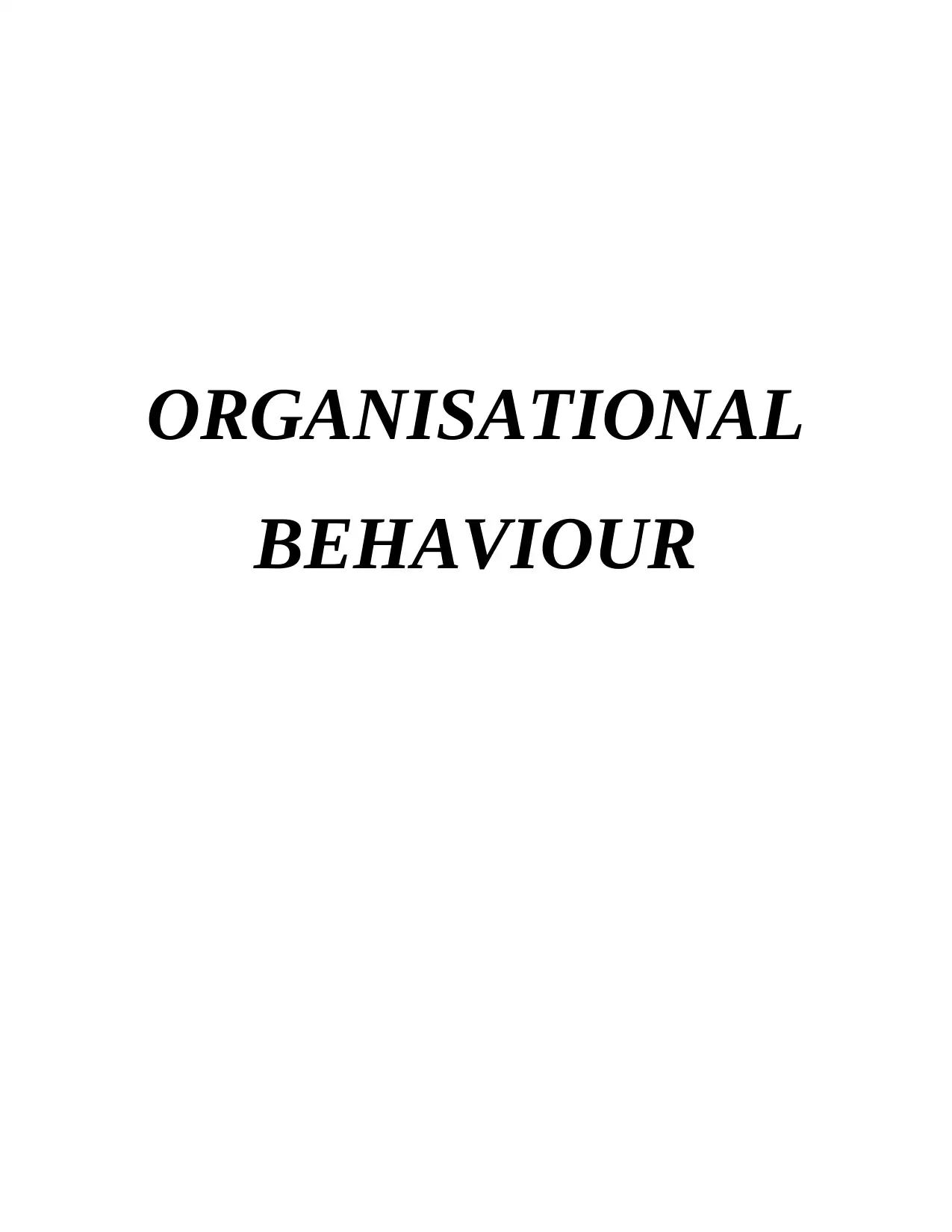
ORGANISATIONAL
BEHAVIOUR
BEHAVIOUR
Paraphrase This Document
Need a fresh take? Get an instant paraphrase of this document with our AI Paraphraser
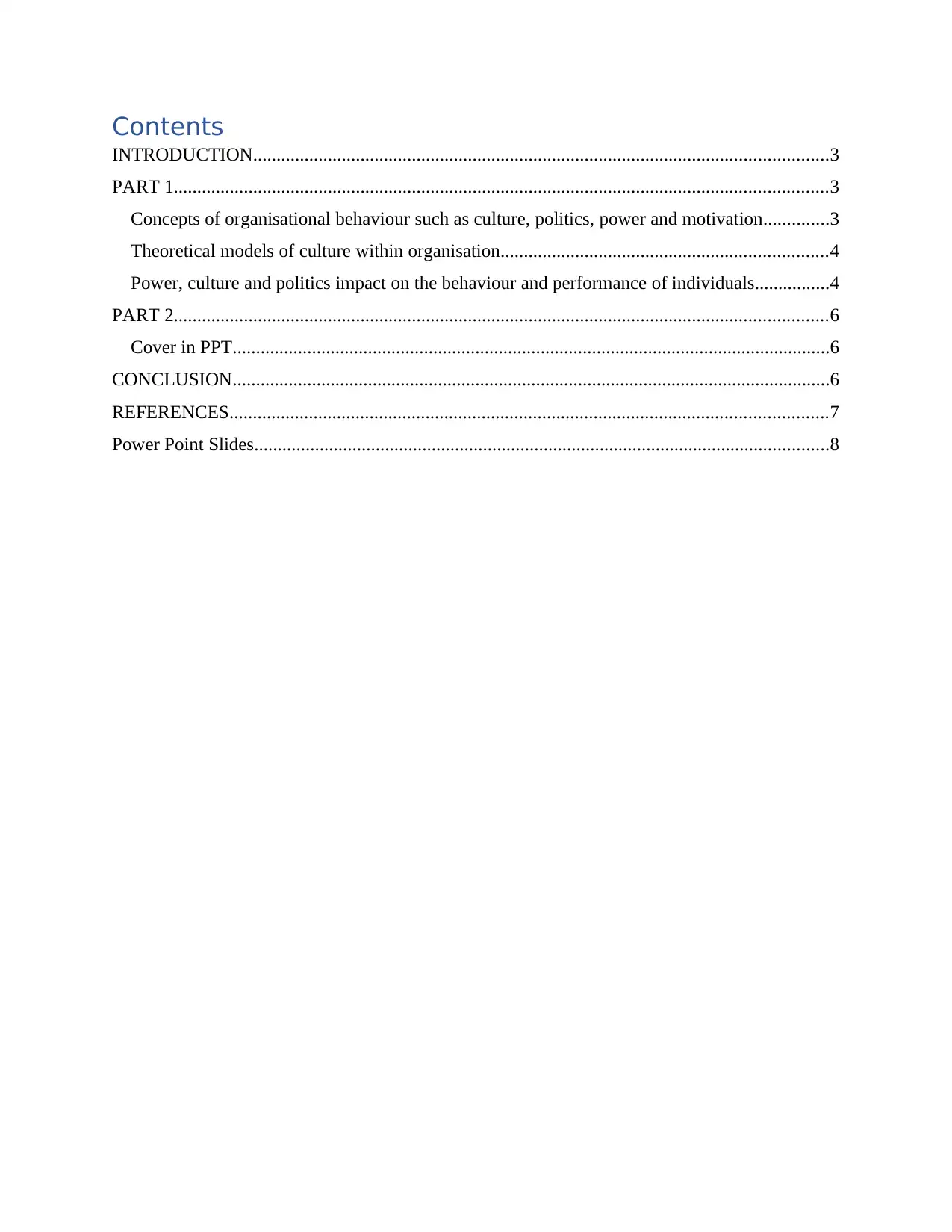
Contents
INTRODUCTION...........................................................................................................................3
PART 1............................................................................................................................................3
Concepts of organisational behaviour such as culture, politics, power and motivation..............3
Theoretical models of culture within organisation......................................................................4
Power, culture and politics impact on the behaviour and performance of individuals................4
PART 2............................................................................................................................................6
Cover in PPT................................................................................................................................6
CONCLUSION................................................................................................................................6
REFERENCES................................................................................................................................7
Power Point Slides...........................................................................................................................8
INTRODUCTION...........................................................................................................................3
PART 1............................................................................................................................................3
Concepts of organisational behaviour such as culture, politics, power and motivation..............3
Theoretical models of culture within organisation......................................................................4
Power, culture and politics impact on the behaviour and performance of individuals................4
PART 2............................................................................................................................................6
Cover in PPT................................................................................................................................6
CONCLUSION................................................................................................................................6
REFERENCES................................................................................................................................7
Power Point Slides...........................................................................................................................8
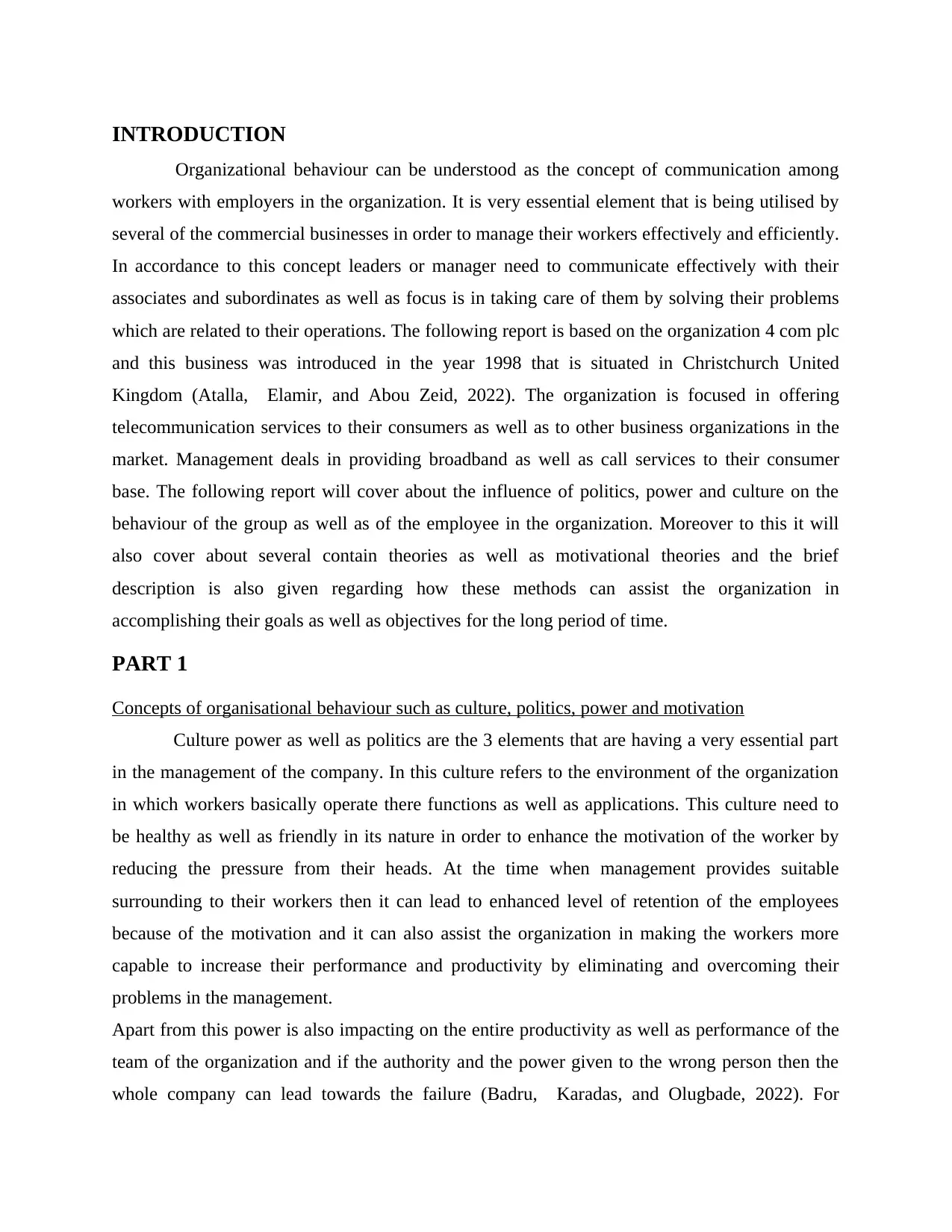
INTRODUCTION
Organizational behaviour can be understood as the concept of communication among
workers with employers in the organization. It is very essential element that is being utilised by
several of the commercial businesses in order to manage their workers effectively and efficiently.
In accordance to this concept leaders or manager need to communicate effectively with their
associates and subordinates as well as focus is in taking care of them by solving their problems
which are related to their operations. The following report is based on the organization 4 com plc
and this business was introduced in the year 1998 that is situated in Christchurch United
Kingdom (Atalla, Elamir, and Abou Zeid, 2022). The organization is focused in offering
telecommunication services to their consumers as well as to other business organizations in the
market. Management deals in providing broadband as well as call services to their consumer
base. The following report will cover about the influence of politics, power and culture on the
behaviour of the group as well as of the employee in the organization. Moreover to this it will
also cover about several contain theories as well as motivational theories and the brief
description is also given regarding how these methods can assist the organization in
accomplishing their goals as well as objectives for the long period of time.
PART 1
Concepts of organisational behaviour such as culture, politics, power and motivation
Culture power as well as politics are the 3 elements that are having a very essential part
in the management of the company. In this culture refers to the environment of the organization
in which workers basically operate there functions as well as applications. This culture need to
be healthy as well as friendly in its nature in order to enhance the motivation of the worker by
reducing the pressure from their heads. At the time when management provides suitable
surrounding to their workers then it can lead to enhanced level of retention of the employees
because of the motivation and it can also assist the organization in making the workers more
capable to increase their performance and productivity by eliminating and overcoming their
problems in the management.
Apart from this power is also impacting on the entire productivity as well as performance of the
team of the organization and if the authority and the power given to the wrong person then the
whole company can lead towards the failure (Badru, Karadas, and Olugbade, 2022). For
Organizational behaviour can be understood as the concept of communication among
workers with employers in the organization. It is very essential element that is being utilised by
several of the commercial businesses in order to manage their workers effectively and efficiently.
In accordance to this concept leaders or manager need to communicate effectively with their
associates and subordinates as well as focus is in taking care of them by solving their problems
which are related to their operations. The following report is based on the organization 4 com plc
and this business was introduced in the year 1998 that is situated in Christchurch United
Kingdom (Atalla, Elamir, and Abou Zeid, 2022). The organization is focused in offering
telecommunication services to their consumers as well as to other business organizations in the
market. Management deals in providing broadband as well as call services to their consumer
base. The following report will cover about the influence of politics, power and culture on the
behaviour of the group as well as of the employee in the organization. Moreover to this it will
also cover about several contain theories as well as motivational theories and the brief
description is also given regarding how these methods can assist the organization in
accomplishing their goals as well as objectives for the long period of time.
PART 1
Concepts of organisational behaviour such as culture, politics, power and motivation
Culture power as well as politics are the 3 elements that are having a very essential part
in the management of the company. In this culture refers to the environment of the organization
in which workers basically operate there functions as well as applications. This culture need to
be healthy as well as friendly in its nature in order to enhance the motivation of the worker by
reducing the pressure from their heads. At the time when management provides suitable
surrounding to their workers then it can lead to enhanced level of retention of the employees
because of the motivation and it can also assist the organization in making the workers more
capable to increase their performance and productivity by eliminating and overcoming their
problems in the management.
Apart from this power is also impacting on the entire productivity as well as performance of the
team of the organization and if the authority and the power given to the wrong person then the
whole company can lead towards the failure (Badru, Karadas, and Olugbade, 2022). For
⊘ This is a preview!⊘
Do you want full access?
Subscribe today to unlock all pages.

Trusted by 1+ million students worldwide
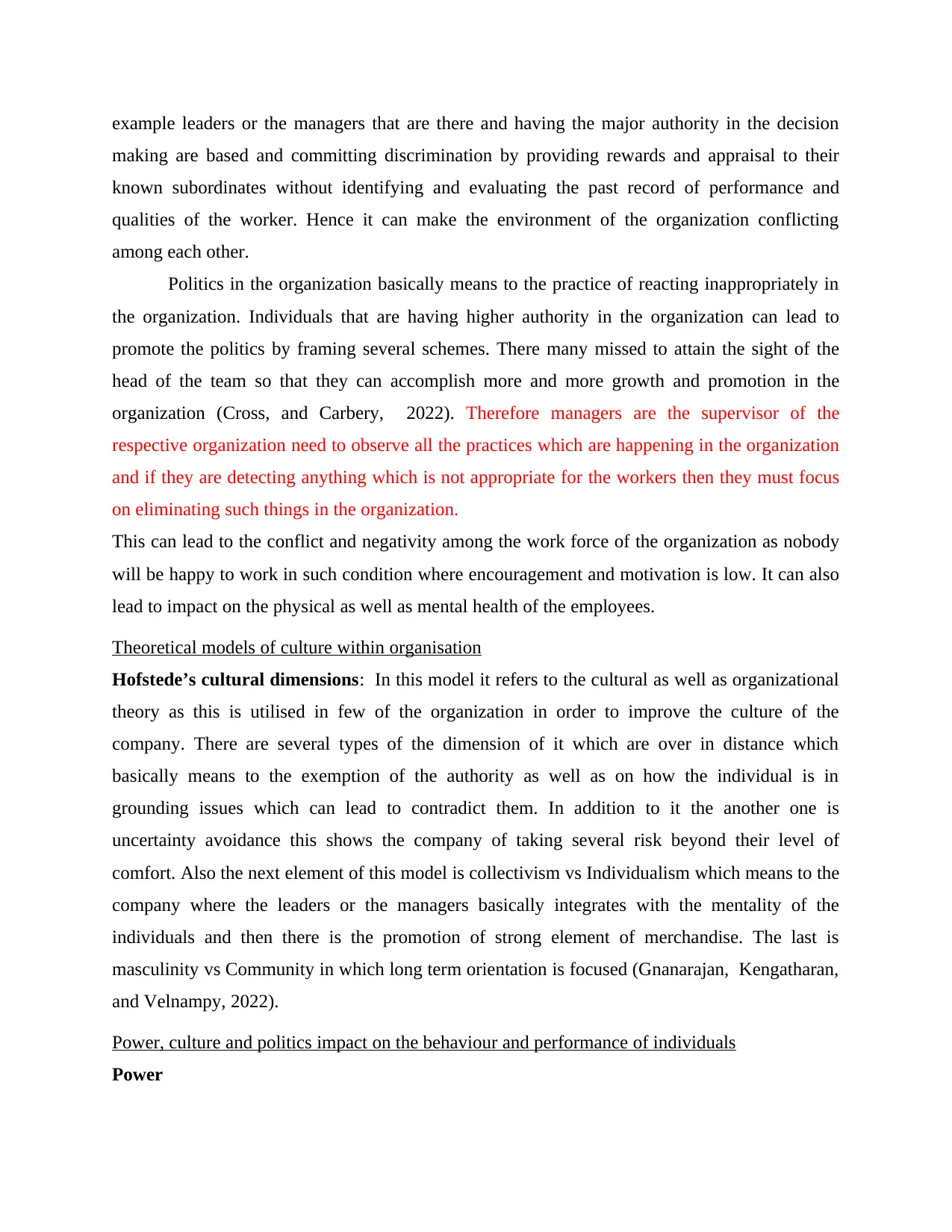
example leaders or the managers that are there and having the major authority in the decision
making are based and committing discrimination by providing rewards and appraisal to their
known subordinates without identifying and evaluating the past record of performance and
qualities of the worker. Hence it can make the environment of the organization conflicting
among each other.
Politics in the organization basically means to the practice of reacting inappropriately in
the organization. Individuals that are having higher authority in the organization can lead to
promote the politics by framing several schemes. There many missed to attain the sight of the
head of the team so that they can accomplish more and more growth and promotion in the
organization (Cross, and Carbery, 2022). Therefore managers are the supervisor of the
respective organization need to observe all the practices which are happening in the organization
and if they are detecting anything which is not appropriate for the workers then they must focus
on eliminating such things in the organization.
This can lead to the conflict and negativity among the work force of the organization as nobody
will be happy to work in such condition where encouragement and motivation is low. It can also
lead to impact on the physical as well as mental health of the employees.
Theoretical models of culture within organisation
Hofstede’s cultural dimensions: In this model it refers to the cultural as well as organizational
theory as this is utilised in few of the organization in order to improve the culture of the
company. There are several types of the dimension of it which are over in distance which
basically means to the exemption of the authority as well as on how the individual is in
grounding issues which can lead to contradict them. In addition to it the another one is
uncertainty avoidance this shows the company of taking several risk beyond their level of
comfort. Also the next element of this model is collectivism vs Individualism which means to the
company where the leaders or the managers basically integrates with the mentality of the
individuals and then there is the promotion of strong element of merchandise. The last is
masculinity vs Community in which long term orientation is focused (Gnanarajan, Kengatharan,
and Velnampy, 2022).
Power, culture and politics impact on the behaviour and performance of individuals
Power
making are based and committing discrimination by providing rewards and appraisal to their
known subordinates without identifying and evaluating the past record of performance and
qualities of the worker. Hence it can make the environment of the organization conflicting
among each other.
Politics in the organization basically means to the practice of reacting inappropriately in
the organization. Individuals that are having higher authority in the organization can lead to
promote the politics by framing several schemes. There many missed to attain the sight of the
head of the team so that they can accomplish more and more growth and promotion in the
organization (Cross, and Carbery, 2022). Therefore managers are the supervisor of the
respective organization need to observe all the practices which are happening in the organization
and if they are detecting anything which is not appropriate for the workers then they must focus
on eliminating such things in the organization.
This can lead to the conflict and negativity among the work force of the organization as nobody
will be happy to work in such condition where encouragement and motivation is low. It can also
lead to impact on the physical as well as mental health of the employees.
Theoretical models of culture within organisation
Hofstede’s cultural dimensions: In this model it refers to the cultural as well as organizational
theory as this is utilised in few of the organization in order to improve the culture of the
company. There are several types of the dimension of it which are over in distance which
basically means to the exemption of the authority as well as on how the individual is in
grounding issues which can lead to contradict them. In addition to it the another one is
uncertainty avoidance this shows the company of taking several risk beyond their level of
comfort. Also the next element of this model is collectivism vs Individualism which means to the
company where the leaders or the managers basically integrates with the mentality of the
individuals and then there is the promotion of strong element of merchandise. The last is
masculinity vs Community in which long term orientation is focused (Gnanarajan, Kengatharan,
and Velnampy, 2022).
Power, culture and politics impact on the behaviour and performance of individuals
Power
Paraphrase This Document
Need a fresh take? Get an instant paraphrase of this document with our AI Paraphraser
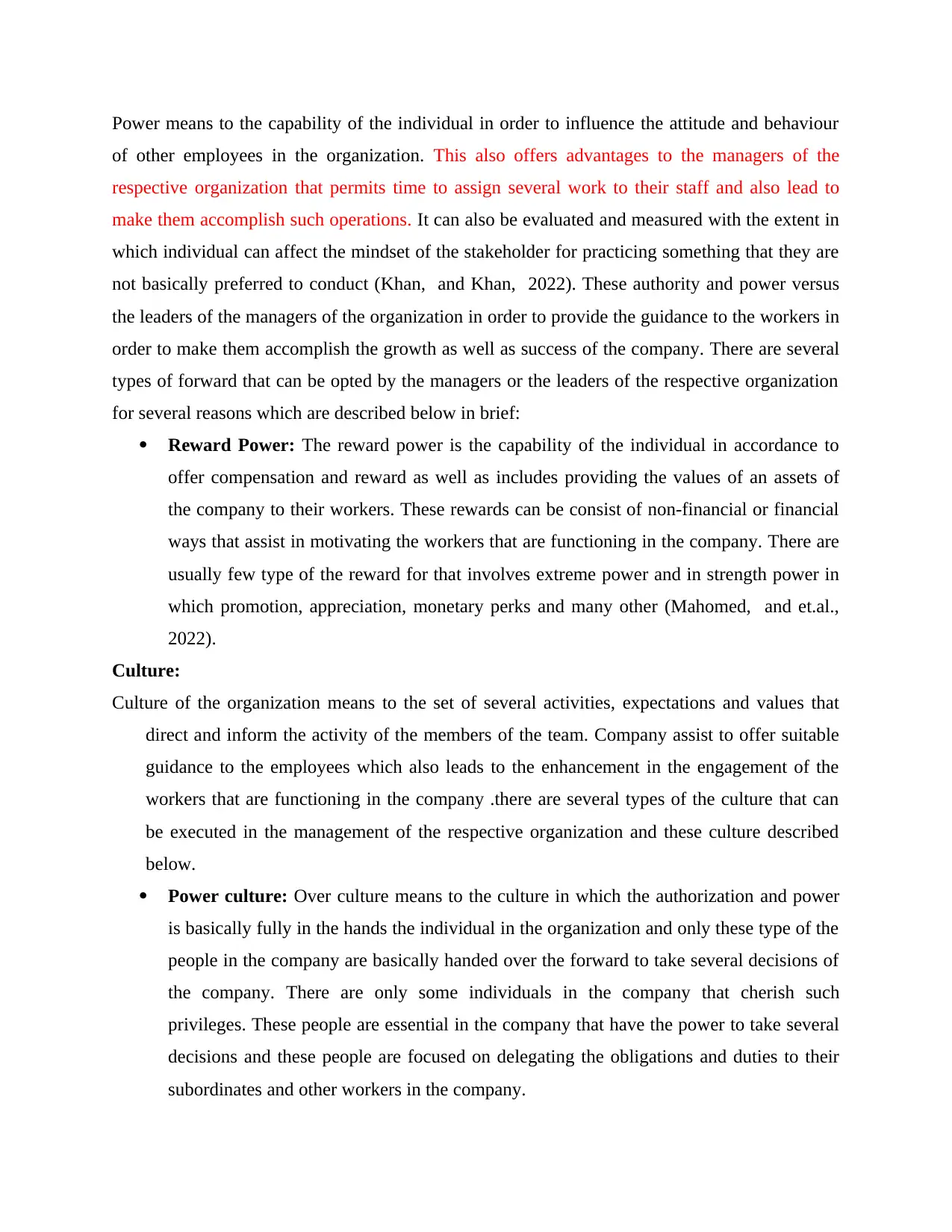
Power means to the capability of the individual in order to influence the attitude and behaviour
of other employees in the organization. This also offers advantages to the managers of the
respective organization that permits time to assign several work to their staff and also lead to
make them accomplish such operations. It can also be evaluated and measured with the extent in
which individual can affect the mindset of the stakeholder for practicing something that they are
not basically preferred to conduct (Khan, and Khan, 2022). These authority and power versus
the leaders of the managers of the organization in order to provide the guidance to the workers in
order to make them accomplish the growth as well as success of the company. There are several
types of forward that can be opted by the managers or the leaders of the respective organization
for several reasons which are described below in brief:
Reward Power: The reward power is the capability of the individual in accordance to
offer compensation and reward as well as includes providing the values of an assets of
the company to their workers. These rewards can be consist of non-financial or financial
ways that assist in motivating the workers that are functioning in the company. There are
usually few type of the reward for that involves extreme power and in strength power in
which promotion, appreciation, monetary perks and many other (Mahomed, and et.al.,
2022).
Culture:
Culture of the organization means to the set of several activities, expectations and values that
direct and inform the activity of the members of the team. Company assist to offer suitable
guidance to the employees which also leads to the enhancement in the engagement of the
workers that are functioning in the company .there are several types of the culture that can
be executed in the management of the respective organization and these culture described
below.
Power culture: Over culture means to the culture in which the authorization and power
is basically fully in the hands the individual in the organization and only these type of the
people in the company are basically handed over the forward to take several decisions of
the company. There are only some individuals in the company that cherish such
privileges. These people are essential in the company that have the power to take several
decisions and these people are focused on delegating the obligations and duties to their
subordinates and other workers in the company.
of other employees in the organization. This also offers advantages to the managers of the
respective organization that permits time to assign several work to their staff and also lead to
make them accomplish such operations. It can also be evaluated and measured with the extent in
which individual can affect the mindset of the stakeholder for practicing something that they are
not basically preferred to conduct (Khan, and Khan, 2022). These authority and power versus
the leaders of the managers of the organization in order to provide the guidance to the workers in
order to make them accomplish the growth as well as success of the company. There are several
types of forward that can be opted by the managers or the leaders of the respective organization
for several reasons which are described below in brief:
Reward Power: The reward power is the capability of the individual in accordance to
offer compensation and reward as well as includes providing the values of an assets of
the company to their workers. These rewards can be consist of non-financial or financial
ways that assist in motivating the workers that are functioning in the company. There are
usually few type of the reward for that involves extreme power and in strength power in
which promotion, appreciation, monetary perks and many other (Mahomed, and et.al.,
2022).
Culture:
Culture of the organization means to the set of several activities, expectations and values that
direct and inform the activity of the members of the team. Company assist to offer suitable
guidance to the employees which also leads to the enhancement in the engagement of the
workers that are functioning in the company .there are several types of the culture that can
be executed in the management of the respective organization and these culture described
below.
Power culture: Over culture means to the culture in which the authorization and power
is basically fully in the hands the individual in the organization and only these type of the
people in the company are basically handed over the forward to take several decisions of
the company. There are only some individuals in the company that cherish such
privileges. These people are essential in the company that have the power to take several
decisions and these people are focused on delegating the obligations and duties to their
subordinates and other workers in the company.
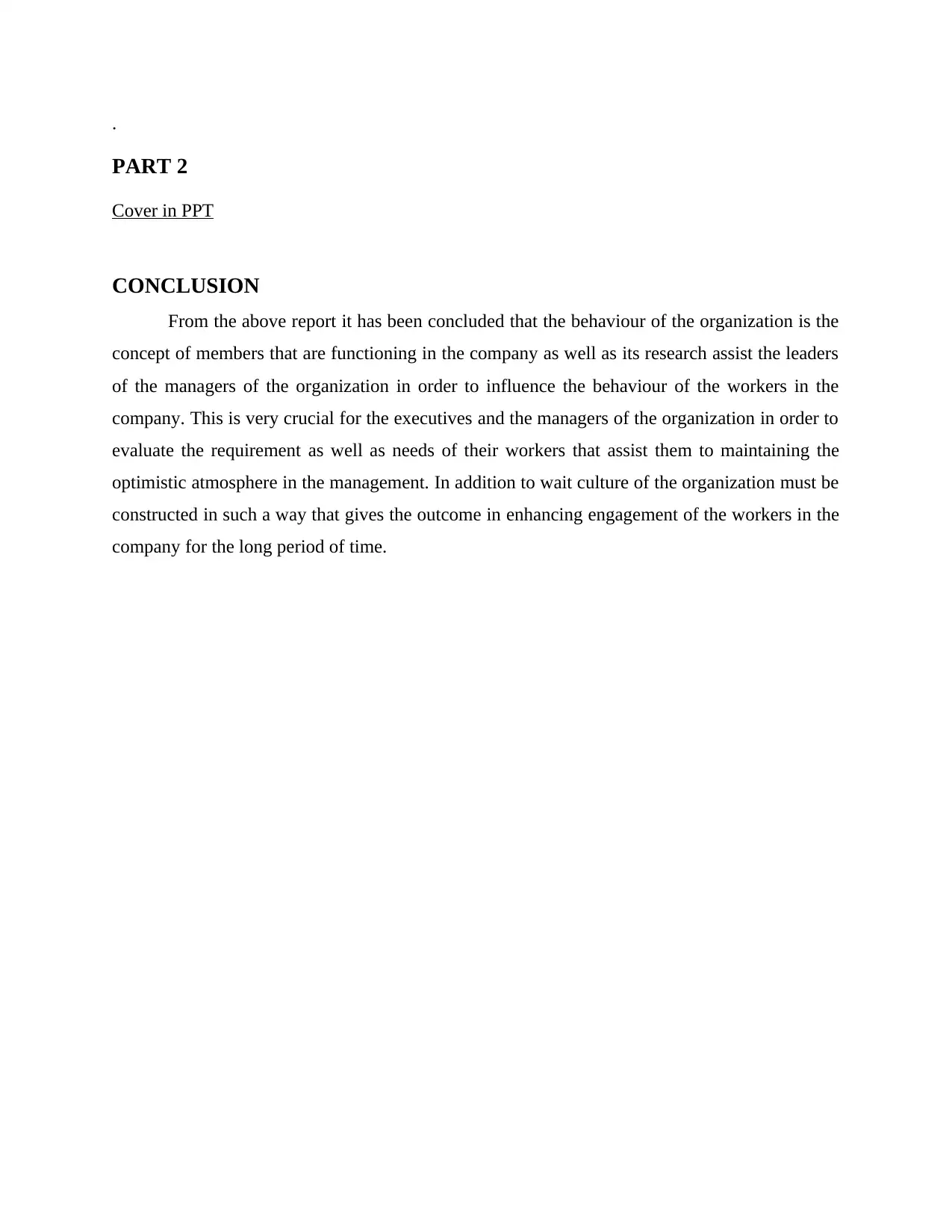
.
PART 2
Cover in PPT
CONCLUSION
From the above report it has been concluded that the behaviour of the organization is the
concept of members that are functioning in the company as well as its research assist the leaders
of the managers of the organization in order to influence the behaviour of the workers in the
company. This is very crucial for the executives and the managers of the organization in order to
evaluate the requirement as well as needs of their workers that assist them to maintaining the
optimistic atmosphere in the management. In addition to wait culture of the organization must be
constructed in such a way that gives the outcome in enhancing engagement of the workers in the
company for the long period of time.
PART 2
Cover in PPT
CONCLUSION
From the above report it has been concluded that the behaviour of the organization is the
concept of members that are functioning in the company as well as its research assist the leaders
of the managers of the organization in order to influence the behaviour of the workers in the
company. This is very crucial for the executives and the managers of the organization in order to
evaluate the requirement as well as needs of their workers that assist them to maintaining the
optimistic atmosphere in the management. In addition to wait culture of the organization must be
constructed in such a way that gives the outcome in enhancing engagement of the workers in the
company for the long period of time.
⊘ This is a preview!⊘
Do you want full access?
Subscribe today to unlock all pages.

Trusted by 1+ million students worldwide
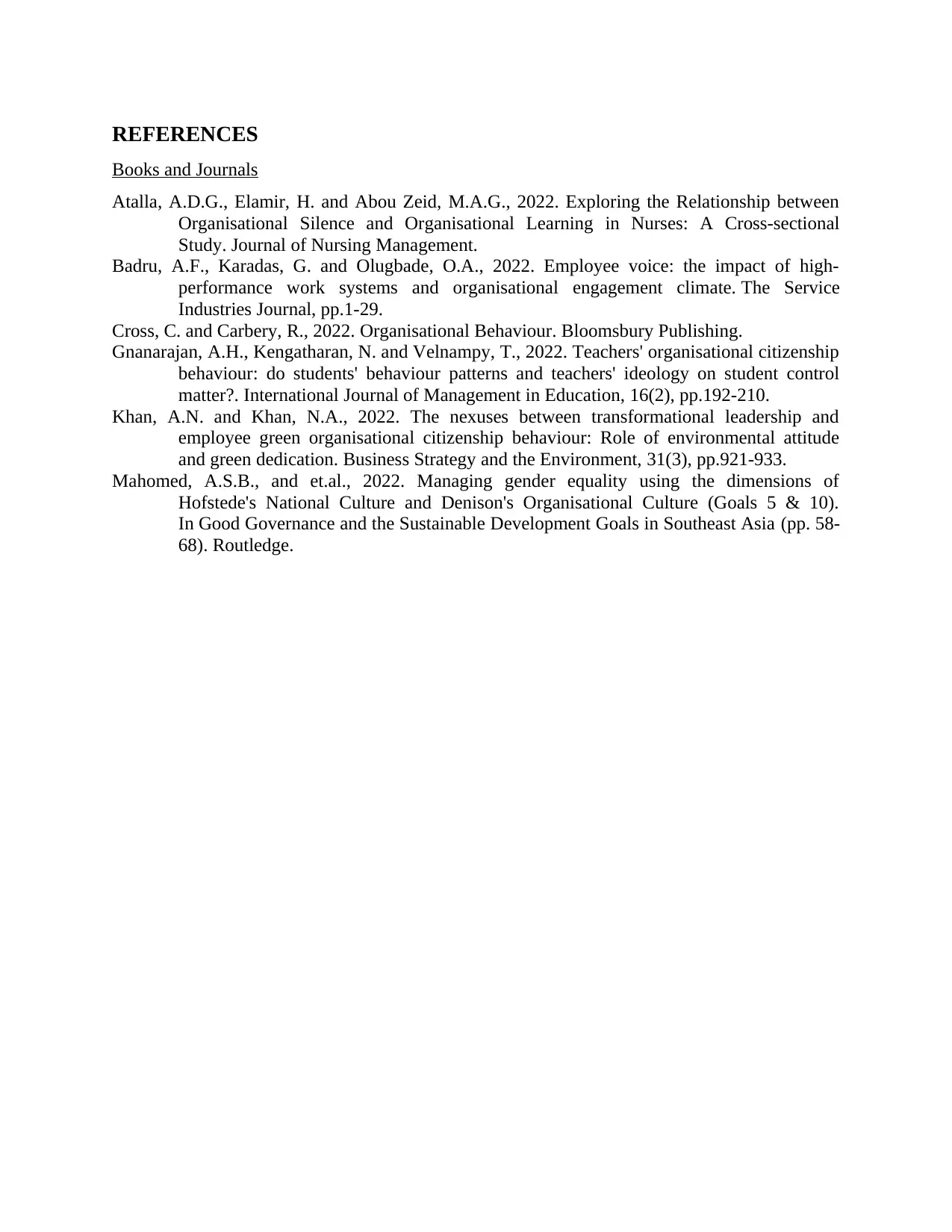
REFERENCES
Books and Journals
Atalla, A.D.G., Elamir, H. and Abou Zeid, M.A.G., 2022. Exploring the Relationship between
Organisational Silence and Organisational Learning in Nurses: A Cross‐sectional
Study. Journal of Nursing Management.
Badru, A.F., Karadas, G. and Olugbade, O.A., 2022. Employee voice: the impact of high-
performance work systems and organisational engagement climate. The Service
Industries Journal, pp.1-29.
Cross, C. and Carbery, R., 2022. Organisational Behaviour. Bloomsbury Publishing.
Gnanarajan, A.H., Kengatharan, N. and Velnampy, T., 2022. Teachers' organisational citizenship
behaviour: do students' behaviour patterns and teachers' ideology on student control
matter?. International Journal of Management in Education, 16(2), pp.192-210.
Khan, A.N. and Khan, N.A., 2022. The nexuses between transformational leadership and
employee green organisational citizenship behaviour: Role of environmental attitude
and green dedication. Business Strategy and the Environment, 31(3), pp.921-933.
Mahomed, A.S.B., and et.al., 2022. Managing gender equality using the dimensions of
Hofstede's National Culture and Denison's Organisational Culture (Goals 5 & 10).
In Good Governance and the Sustainable Development Goals in Southeast Asia (pp. 58-
68). Routledge.
Books and Journals
Atalla, A.D.G., Elamir, H. and Abou Zeid, M.A.G., 2022. Exploring the Relationship between
Organisational Silence and Organisational Learning in Nurses: A Cross‐sectional
Study. Journal of Nursing Management.
Badru, A.F., Karadas, G. and Olugbade, O.A., 2022. Employee voice: the impact of high-
performance work systems and organisational engagement climate. The Service
Industries Journal, pp.1-29.
Cross, C. and Carbery, R., 2022. Organisational Behaviour. Bloomsbury Publishing.
Gnanarajan, A.H., Kengatharan, N. and Velnampy, T., 2022. Teachers' organisational citizenship
behaviour: do students' behaviour patterns and teachers' ideology on student control
matter?. International Journal of Management in Education, 16(2), pp.192-210.
Khan, A.N. and Khan, N.A., 2022. The nexuses between transformational leadership and
employee green organisational citizenship behaviour: Role of environmental attitude
and green dedication. Business Strategy and the Environment, 31(3), pp.921-933.
Mahomed, A.S.B., and et.al., 2022. Managing gender equality using the dimensions of
Hofstede's National Culture and Denison's Organisational Culture (Goals 5 & 10).
In Good Governance and the Sustainable Development Goals in Southeast Asia (pp. 58-
68). Routledge.
Paraphrase This Document
Need a fresh take? Get an instant paraphrase of this document with our AI Paraphraser
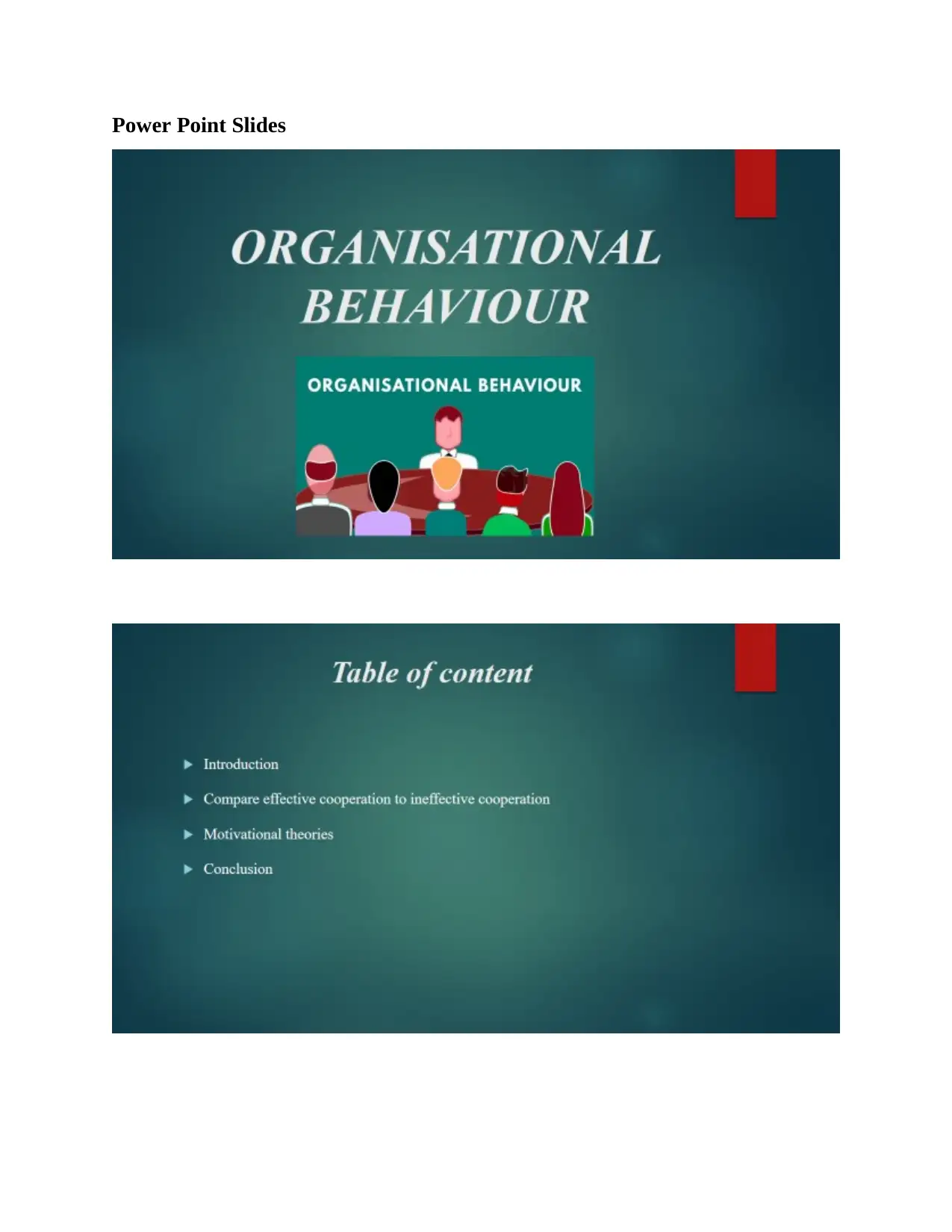
Power Point Slides
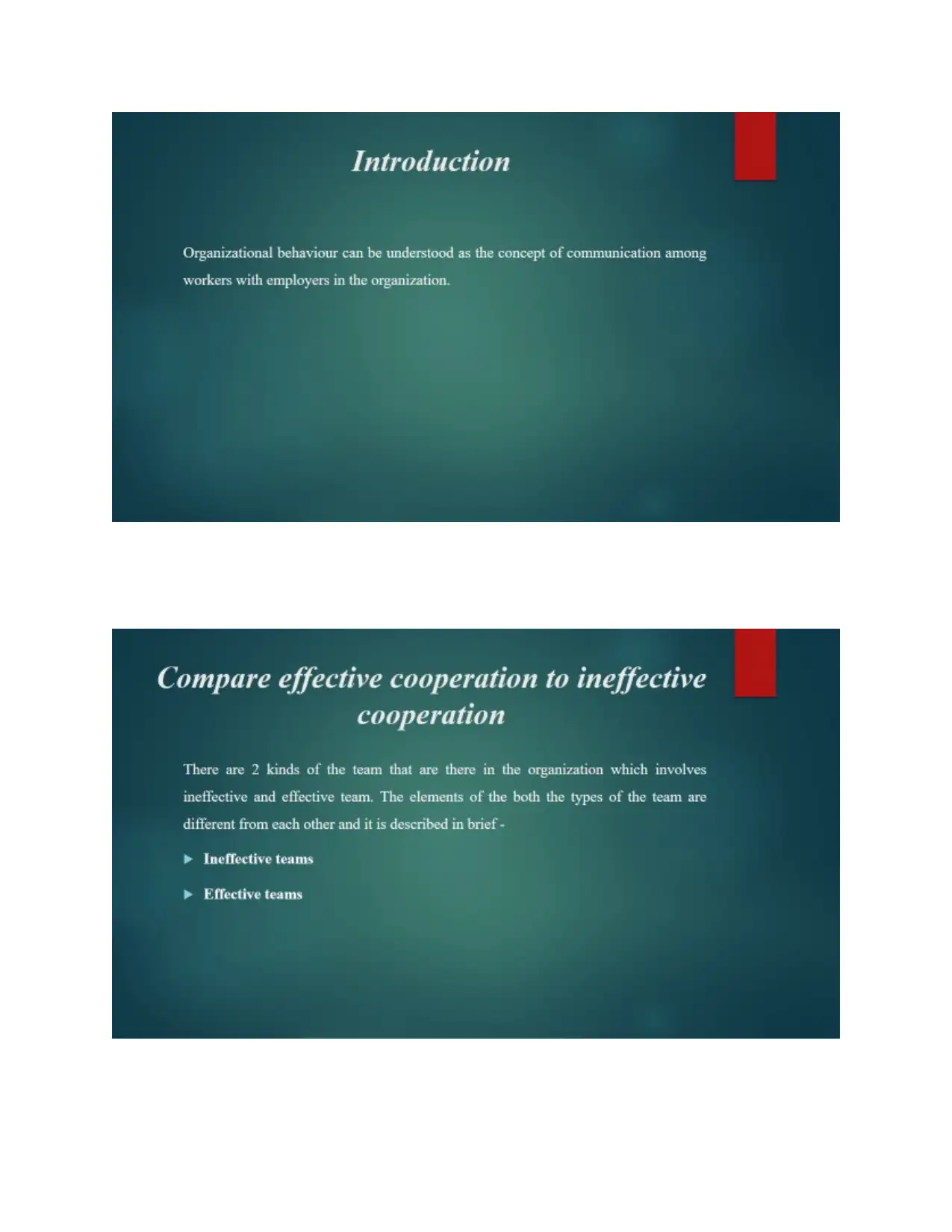
⊘ This is a preview!⊘
Do you want full access?
Subscribe today to unlock all pages.

Trusted by 1+ million students worldwide
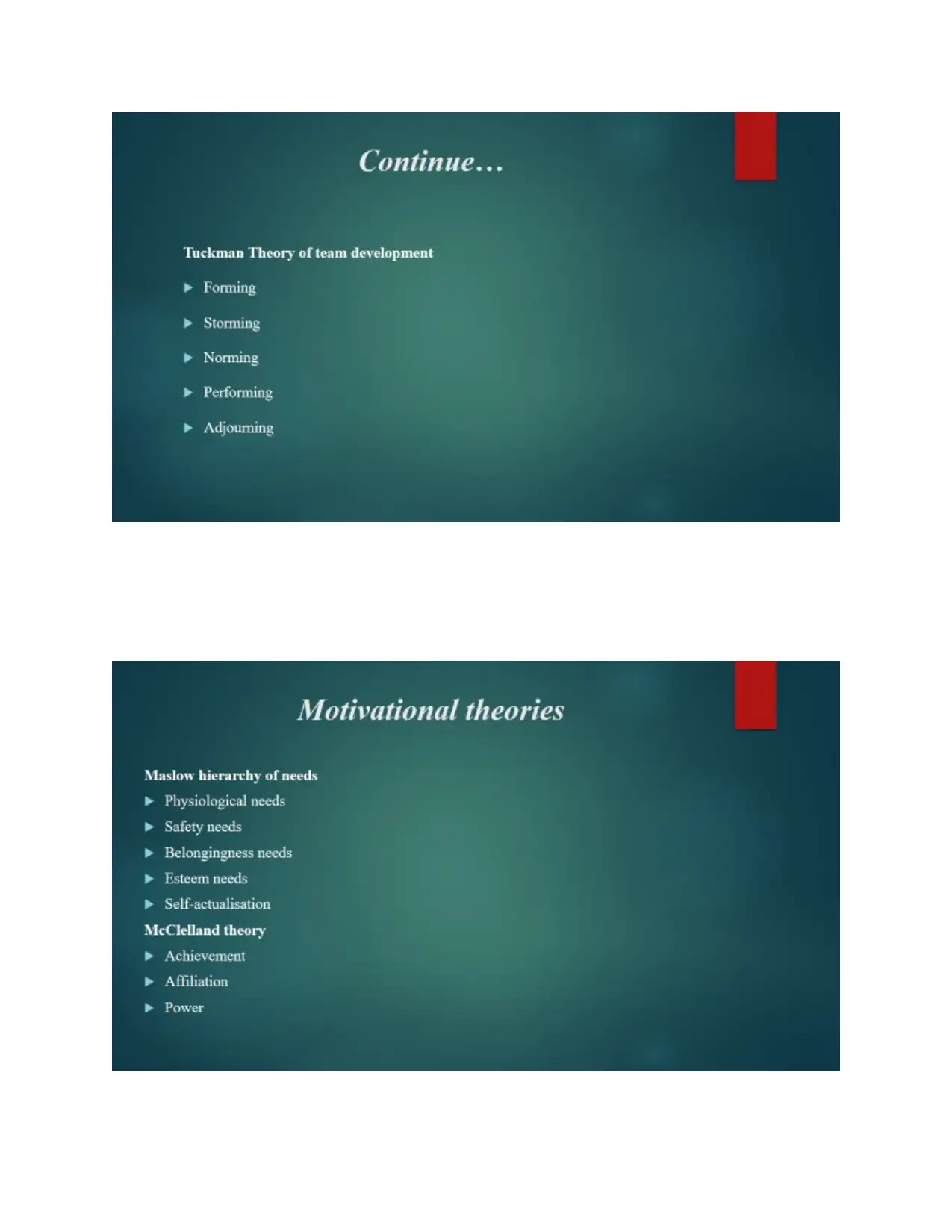
Paraphrase This Document
Need a fresh take? Get an instant paraphrase of this document with our AI Paraphraser
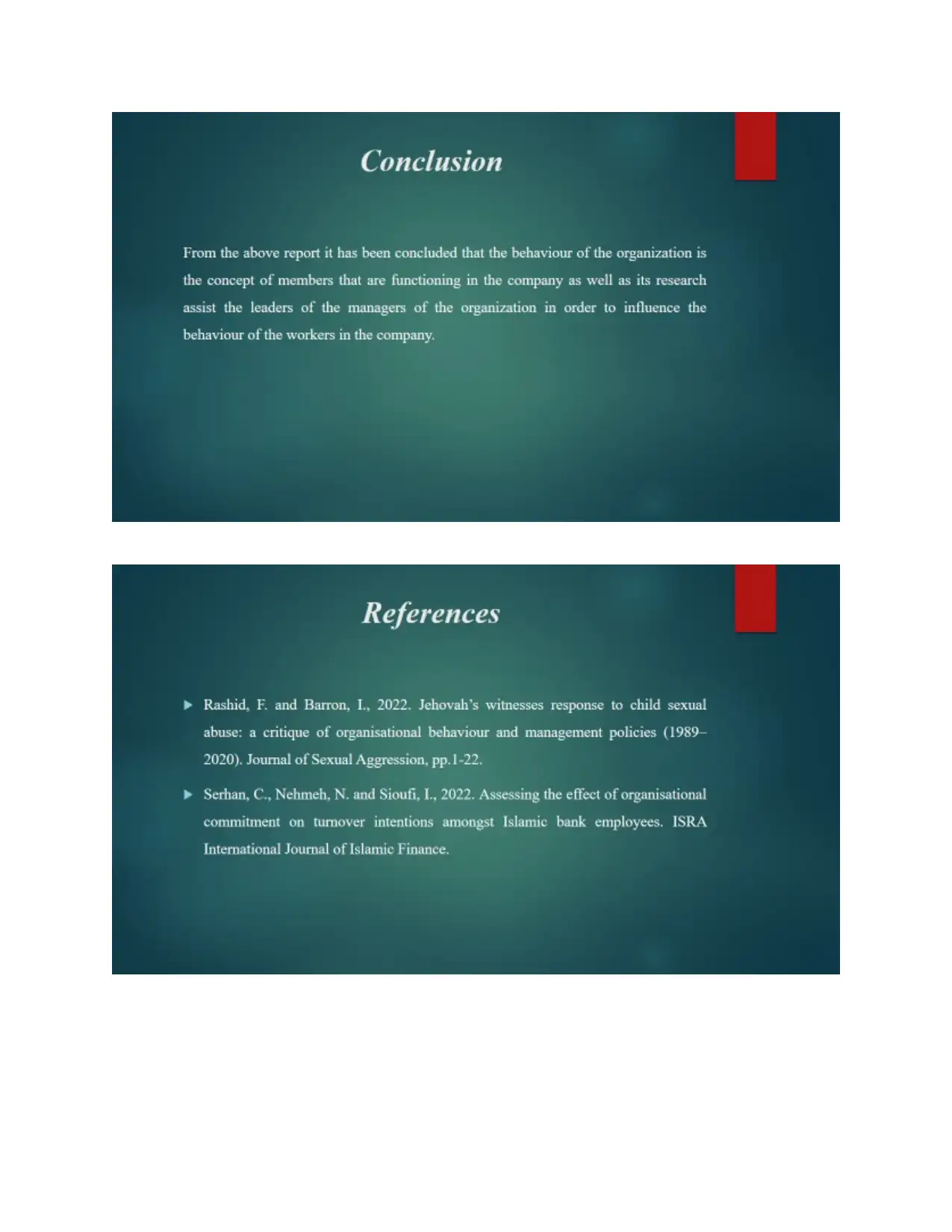

⊘ This is a preview!⊘
Do you want full access?
Subscribe today to unlock all pages.

Trusted by 1+ million students worldwide
1 out of 12
Related Documents
Your All-in-One AI-Powered Toolkit for Academic Success.
+13062052269
info@desklib.com
Available 24*7 on WhatsApp / Email
![[object Object]](/_next/static/media/star-bottom.7253800d.svg)
Unlock your academic potential
Copyright © 2020–2025 A2Z Services. All Rights Reserved. Developed and managed by ZUCOL.


